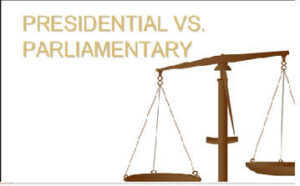1. Introduction:
Religion has been a significant aspect of human civilization, shaping societies, cultures, and individuals throughout history. While many perceive religion as a solution to the problems of the world, others argue that it itself can be an issue. This essay aims to explore the various aspects of religion, including its injunctions and the problems associated with it, and ultimately examine whether religion can provide solutions to the challenges faced by the world today.
2. An Overview of Major Religions & Their Injunctions:
Major religions such as Christianity, Islam, Hinduism, Buddhism, and Judaism have their own set of beliefs, values, and teachings that guide their followers’ lives. These injunctions often focus on moral behavior, social responsibility, compassion, justice, and spirituality. They aim to provide guidance and a moral framework for individuals and communities.
3. Some Issues Apparently Created By Religion:
Religion, despite its positive aspects, has been associated with several issues that have caused division and conflict:
– Inter-religious hatred: Differences in religious beliefs have fueled hatred and conflicts between different religious communities.
– Sectarianism: Within religions, sectarian divisions have led to tension and even violence among different sects or denominations.
– Fanaticism and Intolerance: Extremist interpretations of religious teachings have led to intolerance, discrimination, and violence against individuals or groups who do not adhere to the same beliefs.
– Traditionalism and Conservatism: Religious conservatism can hinder societal progress, preventing the acceptance of scientific advancements, social changes, and equal rights.
– Gender Discrimination: Some religious practices and interpretations have resulted in the marginalization and oppression of women, perpetuating gender inequality.
– Fatalism: Certain religious beliefs emphasizing predestination or divine will have been criticized for discouraging personal agency and promoting a fatalistic mindset.
4. Do Religions Really Cause Problems, Or Is It Merely An Allegation?
The issue of whether religion causes problems or not is complex. While religion itself may not inherently cause problems, the way it is interpreted and practiced by individuals and institutions can lead to negative consequences. It is important to differentiate between the teachings of a religion and the actions of its followers, as well as the manipulation of religion for personal or political motives.
5. Causes of Misunderstanding About Religion:
Misunderstandings about religion can arise due to various factors:
– Negative role of religious leaders and so-called icons: Some religious leaders promote divisive ideologies, incite violence, or misuse their authority, leading to misinterpretations and misunderstandings about the true essence of religion.
– Ineffective contribution by the media: Sensationalism and biased reporting can perpetuate stereotypes and misconceptions about different religions, fostering further misunderstandings.
– Insufficient focus on religious education in modern educational institutions: Lack of comprehensive religious education can contribute to ignorance and misconceptions about different faiths.
– Pursuit of political motives in the guise of religion: Political actors sometimes exploit religious sentiments for their own gain, distorting the true teachings of a religion and fueling conflict.
– Lack of civilization: In societies where cultural and religious diversity is not respected or understood, prejudice and intolerance can arise, further exacerbating misunderstandings about different religions.
6. Actual Causes of the Problems Faced By the World:
While religion can be a factor in certain problems, it is crucial to acknowledge that many global issues are rooted in other causes:
– Political power games: Conflicts driven by geopolitical interests, territorial disputes, and power struggles have caused immense suffering, often irrespective of religious differences.
– Economic motives of nations: Competition for resources, economic inequality, and exploitative policies can lead to social unrest and conflicts that transcend religious boundaries.
– Lack of civilization in human beings: Issues such as greed, selfishness, and lack of empathy contribute to conflicts and injustices, often independent of religious affiliations.
– Missing element of character building in educational institutes: Education systems that do not prioritize holistic character development can contribute to moral decay and societal issues.
– Poor control over and monitoring of scientific advancement: Scientific progress without ethical considerations can lead to the creation of destructive technologies or environmental degradation.
– Deleterious impacts of electronic and social media: Misinformation, hate speech, and polarization amplified by electronic and social media platforms can exacerbate societal divisions.
7. Do Religions Provide A Solution To The Issues The Present World Is Confronted With?
Religions have the potential to offer solutions to the problems faced by the world:
– Propagate Humanism and provide a mechanism for the creation of a terror-free world: Many religions promote principles of peace, compassion, and the inherent worth of every human being, which can contribute to a more harmonious world.
– Inculcate moral values and provide solutions to moral degradation: Religious teachings often emphasize virtues such as honesty, integrity, and kindness, offering guidance in addressing moral decay.
– Encourage generosity and benevolence to resolve poverty and privation issues: Religions often advocate for charitable acts, promoting compassion and addressing societal disparities.
– Spread patience and restraint and develop a society free of atrocities and injustices: Religious teachings on patience, forgiveness, and justice can foster peaceful coexistence and address societal injustices.
– Inculcate a sense of accountability and responsibility in society: Religious beliefs often emphasize personal accountability, which can help counteract lawlessness and the flouting of principles and rules.
– Teach self-restraint and self-control to resolve issues created by greed and avarice: Religious teachings on moderation and contentment can provide an antidote to excessive materialism and its negative consequences.
8. Recommendations for the Dissemination of the True Message of Religion:
To ensure the positive impact of religion, several recommendations can be considered:
– Positive role of religious icons: Religious leaders should emphasize the core values of their faith, promote tolerance, and discourage extremism.
– Government’s patronizing the dissemination of religion in its pure form: Governments can support initiatives that promote interfaith dialogue, religious education, and religious freedom while countering radicalization.
– Introduction of religion as an integral part of curricula: Educational institutions should provide comprehensive religious education that promotes understanding, tolerance, and critical thinking.
– Positive role of media: Media outlets should strive for accurate, unbiased reporting and promote dialogue among different religious communities to foster mutual understanding.
– Focus on similarities in different religions: Emphasizing shared values and common moral teachings across religions can bridge divides and promote harmony.
9. Recommendations for Solutions to World Issues:
Addressing the world’s challenges requires concerted efforts beyond religious realms:
– Effective role of the United Nations: Strengthening international cooperation, diplomacy, and peacekeeping efforts can help resolve conflicts and promote global stability.
– End of power games: World leaders should prioritize cooperation, diplomacy, and conflict resolution over power struggles to reduce conflicts rooted in political motivations.
– Effective role of media in sensitization of brains: Media should prioritize unbiased reporting, responsible journalism, and the promotion of peacebuilding and understanding among different cultures and religions.
– Devising a modus operandi for countering the detrimental effects of scientific advancement: Ethical considerations, responsible innovation, and international regulations should guide scientific progress to prevent harm.
– Diverting energies towards the achievement of Sustainable Development Goals (SDGs): Global efforts should focus on poverty eradication, environmental sustainability, education, healthcare, and social justice to create a more equitable world.
– Compassionate, considerate, and solicitous attitude of superpowers: Powerful nations should exercise responsible leadership, promoting peace, and cooperating for the betterment of all nations.
10. Conclusion:
Religion, like any other aspect of human existence, has its positive and negative aspects. While religion has been associated with various issues, it is essential to differentiate between the teachings of religions and the actions of individuals or institutions. Misunderstandings about religion can be addressed through education, responsible media coverage, and positive religious leadership. Ultimately, religions can provide solutions to the problems faced by the world today by promoting humanism, moral values, compassion, patience, accountability, and self-restraint. However, the resolution of global challenges requires collective efforts that go beyond religious boundaries, including political cooperation, economic equality, ethical scientific advancement, and a focus on sustainable development.
Read Also: Man is Born Free and Everywhere He is in Chains: Unraveling the Paradox of Human Freedom
📍 English Language Educator | Blogger & Content Strategist | 7+ Years in Educational Blogging
Nosheen Bashir is a dedicated English teacher and experienced blogger with over seven years of expertise in content creation and educational writing. Passionate about language, literature, and effective communication, she combines her teaching experience with blogging skills to create insightful, research-backed content that helps learners and educators alike.
🔹 Expertise & Achievements:
✔ English Language Education: A skilled educator with years of experience in teaching English grammar, literature, and communication skills to students of varying levels.
✔ Educational Blogging: Running a successful blog for 7+ years, delivering well-structured, engaging content on language learning, writing techniques, and academic success.
✔ SEO & Content Strategy: Specializes in creating high-ranking, authoritative articles that follow Google’s EEAT principles, ensuring content that is both informative and search-friendly.
✔ Student-Centric Approach: Committed to making English easier, engaging, and accessible, helping readers and students improve their language proficiency.
🚀 With a passion for teaching and writing, Nosheen Bashir is dedicated to crafting educational content that empowers students, teachers, and language enthusiasts worldwide.










